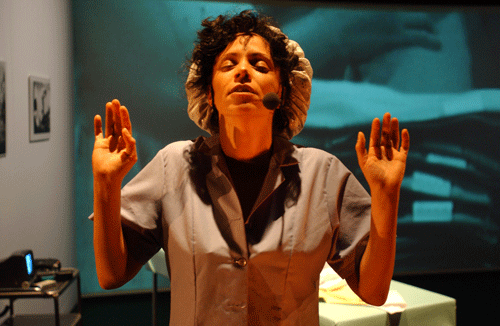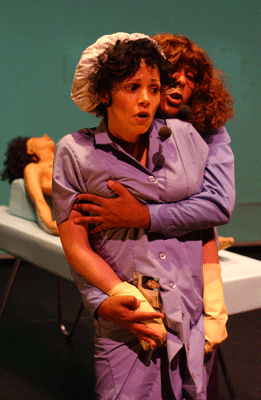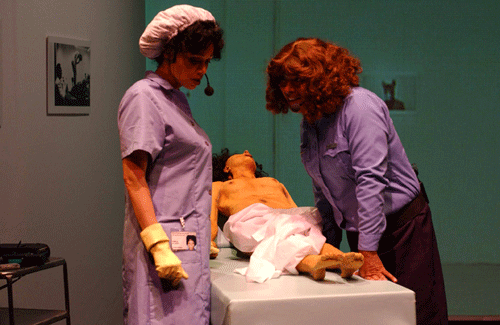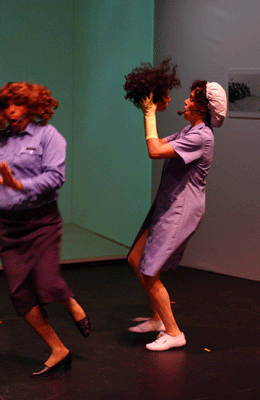The Incredible Disappearing Woman
Performance with Ricardo Dominguez | 2003
The In-Transit Festival, House of World Cultures, Berlin
The Institute of Contemporary Art, London
The TBA Festival, Portland
The International Performance Festival, Pancevo, Serbia
Licensing requests for publication of images of Fusco’s performances and videos are handled by The Artists Rights Society. https://arsny.com/licensing-requests/
The Incredible Disappearing Woman is about art, sex and death at the US–Mexico border. It is also about how and why we relate to political violence via technological mediation. To suggest ways in which we as cultural consumers evoke and respond to larger social forces, I have put radically divergent archetypes together in the confined space of a “live chat” room connected to the internet. The actual audience in the theater will watch a drama unfold that is produced in response to instructions from four off–stage characters who appear to be transmitting them via the internet to three characters on stage.
The interactive chat studio is presented as a virtual museum of transgressive acts for sophisticated consumers of perversion. Customers who log on choose from a list of “galleries” showcasing a variety of live performances that breach social, political and sexual taboos, and relay commands to the performers to shape the acts according to their particular tastes. The two live characters onstage play out the fantasies of their virtual clients, and dress up and assume roles and scenes in accordance with commands. They are joined by a third character who is played by a decrepit robot who does not understand that she is not human.
The scenes on stage are devoted to fantasies about necrophilia that are loosely based on the true story of an American male artist who traveled to Mexico in the 70s to rent the body of a dead woman, have sex with her and document it as art. I invoke this moment in the history of performance to explore what it means to have to play dead in order to live in all its political, techno–cultural and gendered implications. As the performers go through the requested sketches, they allude to real life situations of religious and political repression. However, as low–paid service workers catering to telematic consumers of violence, they dramatize these histories as endlessly rerun games in which actors are “meat puppets.”
ENG | SPA




